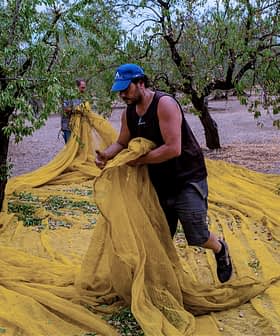New regulations to curb the influx of killer plant pests such as the fatal olive tree disease Xylella fastidiosa, have been preliminarily approved by members of the European Parliament.
MEPs informally agreed to the package of new measures during high-level talks in Luxembourg yesterday, December 16.
Parliament has agreed on measures to protect our countries from the ravages of pests and diseases, which can potentially destroy whole species of trees, plants and plant products.
The interim deal introduces preventive measures for important plants, especially those considered to be extremely high-risk to diseases such as Xylella fastidiosa, which is ravaging olive crops in the Puglia region of Italy as well as the French island of Corsica.
There is widespread debate about its devastating effects on future olive harvests and consequently its impact on the olive oil industry.
There are fears that Xylella, which has no cure, can spread to other plant crops, posing a threat through European trade channels.
“Plant health is an important issue for the whole of Europe. I am very pleased that Parliament, together with the member states, has agreed on measures to protect our countries from the ravages of pests and diseases, which can potentially destroy whole species of trees, plants and plant products,” said the rapporteur, Anthea McIntyre who led the Parliament negotiating team.
Imported plants and plant products passport system
Part of the measures concern professional operators importing plants and plant products, but also extend to postal services and Internet clients as well as passengers importing ‘risky’ plants in their luggage.
Under the new rules, all of these people will need to hold a phytosanitary certificate (an official document issued by the plant protection organization of the exporting country to the plant protection organization of the importing country), while private travelers who import small volumes of particular plants would be exempt.
Meanwhile, the plant passport system will cover all movements of plants that are planted within European Union territory, except for those supplied directly to final users such as home gardeners, according to the provisional agreement.
The next steps involve the provisionally agreed text being endorsed by the European Council and the EU’s agricultural committee before going before the full Parliament.
An EU press release added how the measures to eradicate dangerous pests will only work if all sources of infestation are removed.
“The deal, therefore, allows member states and their relevant authorities to apply the measures in private premises, if necessary, but only to the extent needed to protect the public interest,” it said.








